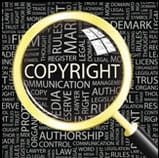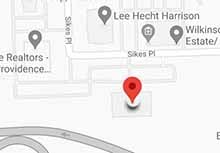Copyright

Copyright protects original works of authorship fixed in any tangible medium of expression, now known or later developed, from which they can be perceived, reproduced, or otherwise communicated, either directly or with the aid of a machine or device. Such works of authorship include: literary works; musical works, including any accompanying words; dramatic works, including any accompanying music; pantomimes and choreographic works; pictorial, graphic, and sculptural works; motion pictures and other audiovisual works; sound recordings; and architectural works.
The legal basis for copyright protection in the United States is found in the United States Constitution, which provides that:
“Congress shall have the power…To promote the Progress of Science and useful Arts, by securing for limited Times to Authors and Inventors the exclusive Right to their respective Writings and Discoveries.” U.S. Constitution, Article I, Section 8, Paragraph 8.
The owner of a copyright has the exclusive rights to do and to authorize any of the following:
(1) to reproduce the copyrighted work in copies or phonorecords;
(2) to prepare derivative works based upon the original copyrighted work;
(3) to distribute copies or phonorecords of the copyrighted work to the public by sale or other transfer of ownership, or by rental, lease, or lending;
(4) in the case of literary, musical, dramatic, and choreographic works, pantomimes, and motion pictures and other audiovisual works, to perform the copyrighted work publicly;
(5) in the case of literary, musical, dramatic, and choreographic works, pantomimes, and pictorial, graphic, or sculptural works, including the individual images of a motion picture or other audiovisual work, to display the copyrighted work publicly; and
(6) in the case of sound recordings, to perform the copyrighted work publicly by means of a digital audio transmission.
Anyone who violates any of these exclusive rights of the copyright owner is an infringer of the copyright.
A copyright registration can be obtained for original works of authorship by filing an application for registration in the U.S. Copyright Office, and depositing copies of the work with the application. When, after examination, the Register of Copyrights determines that the material deposited constitutes copyrightable subject matter and that the other legal and formal requirements of an application have been met, the Register shall register the claim and issue to the applicant a certificate of registration under the seal of the Copyright Office.
A copyright registration provides significant legal benefits to the owner, including the right to file lawsuits for copyright infringement, and the ability to recover statutory damages (potentially up to $150,000 for willful infringement of the copyrighted work) and attorneys’ fees if registration is made within three months after publication of the work or prior to an infringement of the work. Also, if made before or within five years of publication, registration will establish prima facie evidence in court of the validity of the copyright and of the facts stated in the certificate.
Furthermore, a copyright registration allows the owner of the copyright to record the registration with the U. S. Customs Service for protection against the importation of infringing copies. Therefore, it is generally recommended that an application for registration be filed as soon as possible after creation of the work.
Ashley Law Firm P.C. prepares and files applications for copyright registrations in the U.S. Copyright Office. In addition, Ashley Law Firm P.C. handles copyright infringement litigation, including the representation of copyright owners against infringers as well as individuals and businesses accused of copyright infringement.

